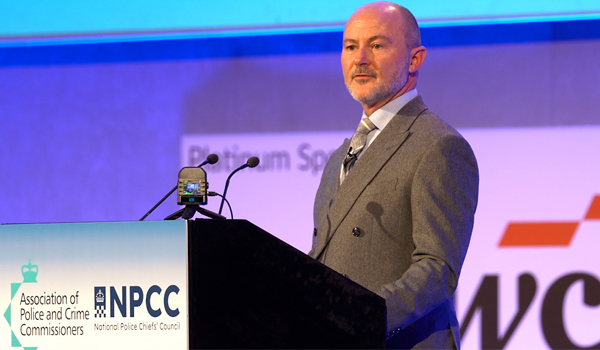‘Policing at a crossroads, with tough decisions to make’, says NPCC chair
National Police Chiefs’ Council (NPCC) chair Chief Constable Gavin Stephens has warned of “significant choices and tough decisions” for policing as it continues to navigate increasingly turbulent times.
Opening the annual NPCC/Association of Police and Crime Commissioners (APCC) Partnership Summit, Mr Stephens underlined the fact policing is at a crossroads; citing the ongoing work around police reform, the changing political landscape, an increasingly divided society and acknowledged the impact of last week’s announcement regarding police and crime commissioners.
The focus of the 2025 summit is on the delivery of stronger, safer and more cohesive communities in an increasingly digital world.
Mr Stephens spoke of the widespread protests across the UK in the last year which have created significant societal division, a “sad and stark position” he said that 84 per cent of those asked in a recent IPSOS survey agreed with.
He highlighted the need for greater balance in the Government’s focus on the policing workforce, with equal emphasis on both officers and staff. He spoke of how successive governments have used police constable numbers as a proxy measure of success, saying: “There is no other profession where the quantity of one employee type is used in such a way. The office of constable is precious and unique in so many ways, but so is the role of police staff – both need to be supported by the very best technology possible. We must recognise that the police workforce needs to change to ensure we can keep up with modern police demands.”
Mr Stephens called for recognition of science, data and technology as intrinsic to operational policing and not a support function, saying:
“We need to invest in greater digital expertise to enable the rapid deployment of proven technologies, as it will bring more criminals to justice with less delay, and consequently protect more victims,” he said. “To inform this science and technology investment, we must be clear about the problems we need to solve, with a focus on diagnostics – before prescription.”
Mr Stephens closed with a clear and determined focus that policing has to progress forward, carving out a new path and must not fall back to past ways of working and structures which are clearly no longer fit for purpose.
He spoke of how difficult choices have to be made, from ensuring policing is equipped to tackle the challenges from online harms, which now drive so many crime types, to designing a police service set up to succeed for decades ahead – and all of this, of course, in an environment with increasing financial pressures where every penny counts.
Despite the challenges and adversity, Mr Stephens said he is confident that policing has “the right people, technology and drive to meet our communities’ needs”.
He finished with a defiant ambition: “We will find ways to make the internet a hostile place for criminality…
“We will, knowing that we are only ever custodians for the next generation, find a design for policing that is fit for the next half a century, and…
“We will have a workforce that exploits the very best of UK science and technology to keep people safe.”


